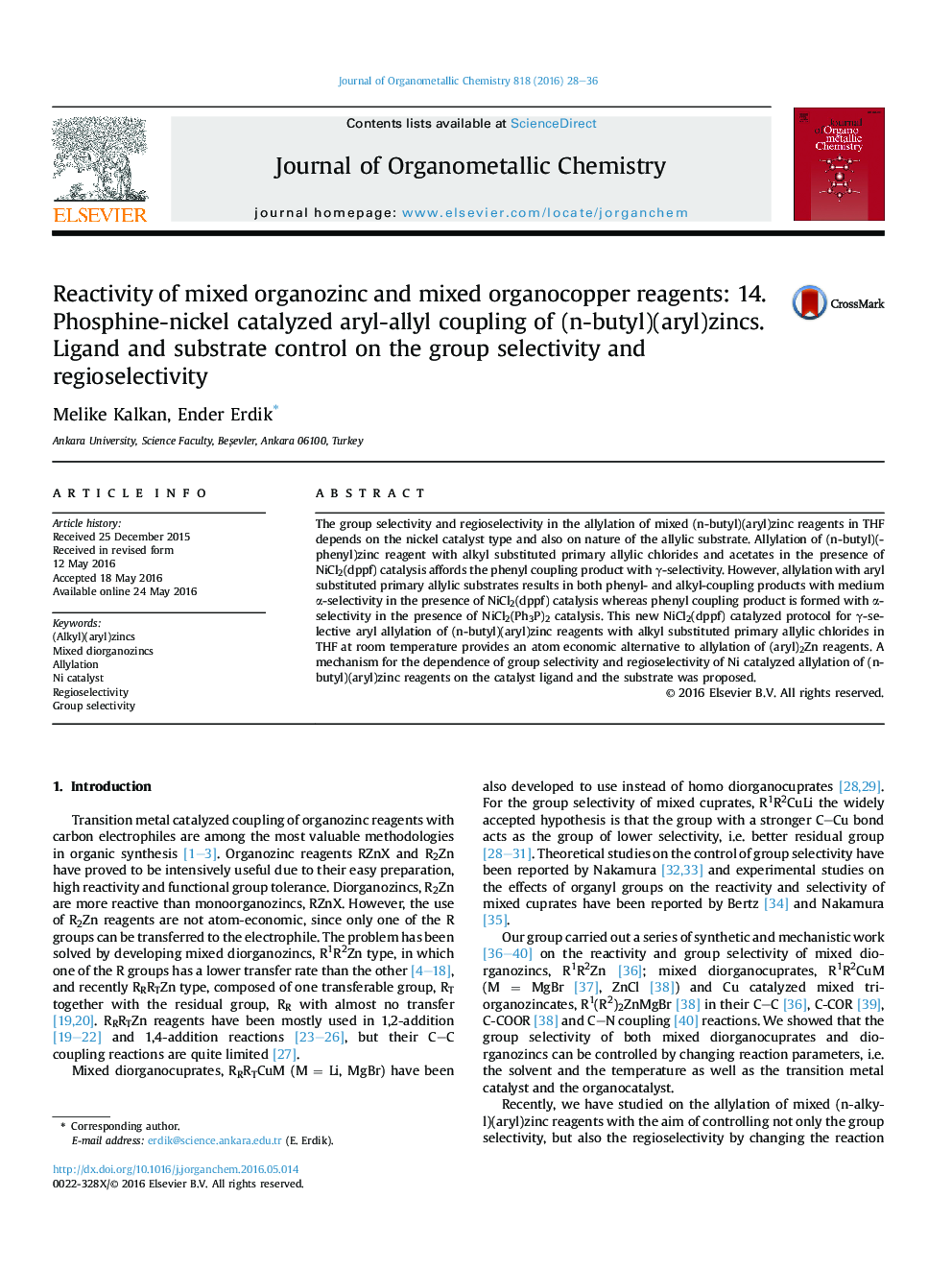| Article ID | Journal | Published Year | Pages | File Type |
|---|---|---|---|---|
| 1321665 | Journal of Organometallic Chemistry | 2016 | 9 Pages |
•Regioselectivity in Ni catalyzed allylation of (alkyl)(aryl)Zn depends on catalyst.•NiCl2(dppf) catalyzed allylation with MeCH = CHCH2Cl gives γ-aryl transfer.•This procedure provides a new synthesis for γ−selective aryl-allyl coupling of alkylarylzincs.•NiCl2(Ph3P)2 catalyzed allylation with MeCH = CHCH2Br gives α−aryl transfer.
The group selectivity and regioselectivity in the allylation of mixed (n-butyl)(aryl)zinc reagents in THF depends on the nickel catalyst type and also on nature of the allylic substrate. Allylation of (n-butyl)(phenyl)zinc reagent with alkyl substituted primary allylic chlorides and acetates in the presence of NiCl2(dppf) catalysis affords the phenyl coupling product with γ-selectivity. However, allylation with aryl substituted primary allylic substrates results in both phenyl- and alkyl-coupling products with medium α-selectivity in the presence of NiCl2(dppf) catalysis whereas phenyl coupling product is formed with α-selectivity in the presence of NiCl2(Ph3P)2 catalysis. This new NiCl2(dppf) catalyzed protocol for γ-selective aryl allylation of (n-butyl)(aryl)zinc reagents with alkyl substituted primary allylic chlorides in THF at room temperature provides an atom economic alternative to allylation of (aryl)2Zn reagents. A mechanism for the dependence of group selectivity and regioselectivity of Ni catalyzed allylation of (n-butyl)(aryl)zinc reagents on the catalyst ligand and the substrate was proposed.
Graphical abstractFigure optionsDownload full-size imageDownload as PowerPoint slide
